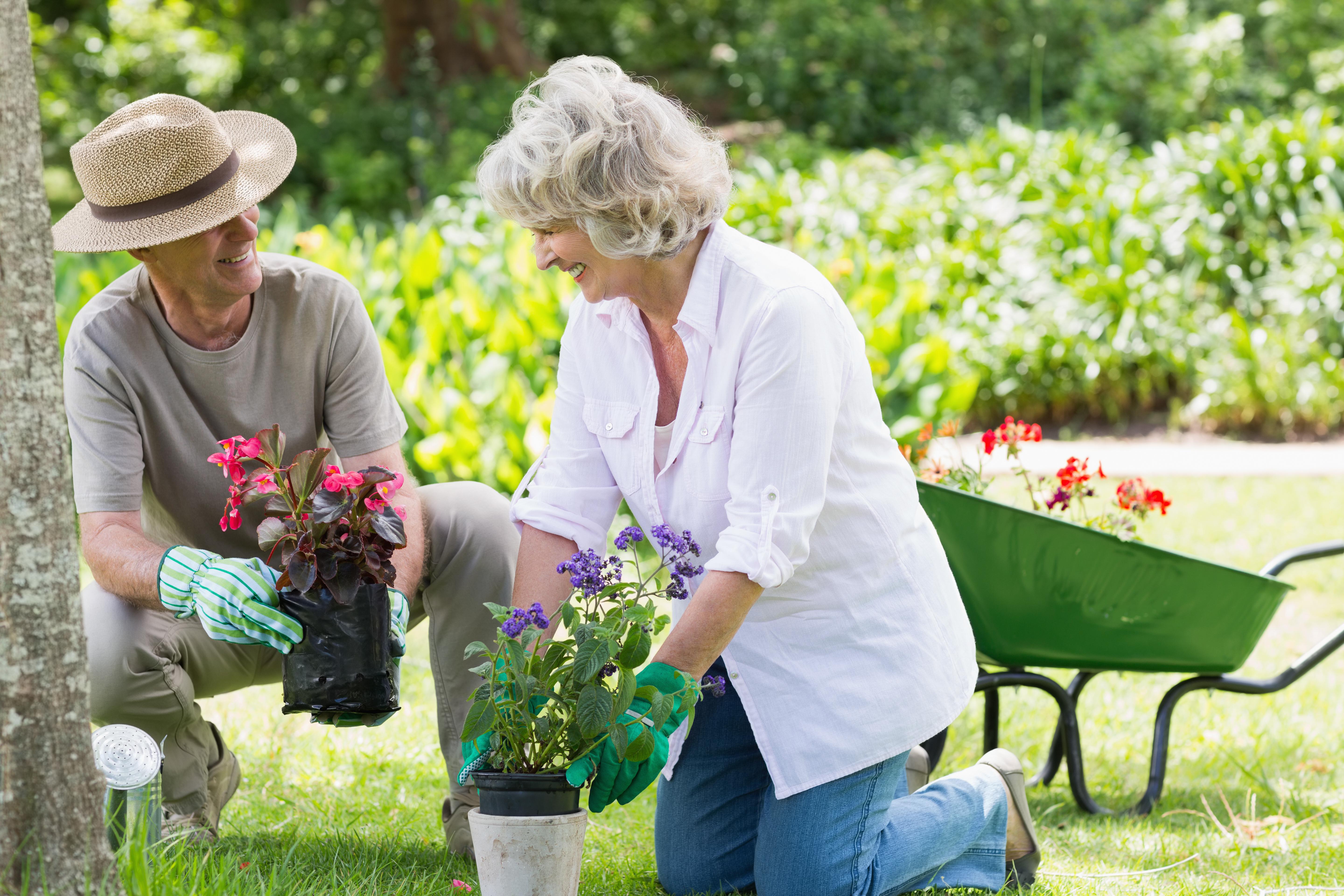
Gardening has been proven to have a wide range of benefits – both physical and mental. Considered a form of light exercise, gardening combines mobility and cognitive function, all whilst allowing the person to get out and about in nature. It’s a well-loved activity, but one many people think must stop once you get older.
On the contrary, gardening is an excellent activity for elderly people! It can have so many positive impacts on their lives and their wellbeing, although adjustments may need to be made to ensure gardening remains safe and enjoyable. If you’re looking into gardening help for the elderly, we’ve put together some top tips and things to be mindful of so that it remains a pleasurable, relaxing experience.
Benefits of Gardening for the Elderly
Firstly, let’s explore why gardening is so good for the elderly. Exercise is a component of gardening many people overlook, but it’s one of its main benefits. Studies show that gardening for 30 minutes burns the same number of calories as playing a game of badminton, volleyball, or even doing a yoga session. Whilst the main goal for elderly people may not be burning calories, everyone can benefit from getting active.
The NHS has proven that those who exercise on a regular basis are 35% less likely to suffer from a stroke or heart disease, both of which are major risks to elderly people. It’s not just physically that gardening can benefit you – it can also have a positive impact on your mental health, too. The King’s Fund found that those who engage in gardening are more likely to have better social skills, as well as less of a risk of developing anxiety and depression.
Gardening Ideas for the Elderly
So, now we know the benefits of gardening (and there are many), let’s explore some gardening ideas. As we get older, our mobility tends to reduce, and we become less able to undertake strenuous physical tasks. Gardening can – at times – be incredibly strenuous and hard on the body. It’s unlikely the average elderly person will be able to safely prune a large tree or dig up roots and stumps, but that doesn’t mean they’re limited to basic plants only.
Raised Planters
As mentioned, joints and bones become more sensitive as we get older. This means bending down isn’t always an option, and where it is, more care needs to be taken. A good way to get around the aches and pains associated with bending down whilst gardening is to bring the garden up a level. This can easily be done through the use of raised planters, hanging baskets, window boxes, and trellises.
Many elderly people who struggle with mobility make the switch to vertical gardens instead; however, those who are able to retain some level of mobility may find kneeling pads of use as they relieve the pressure and hardness of the ground on sensitive joints. In any case, raised planters are a great idea because they reduce the risks of a fall, not to mention aiding the drainage of plants and better soil quality, too.
Remove Grass
Lawn tends to make up the biggest portion of a garden, and whilst it looks great and attracts lots of wildlife when properly kept, it requires a level of maintenance most elderly people are unable to commit to. This means grass can easily die out, become overgrown, and quickly look unkept. This can not only look bad, but it also presents a trip hazard that could be very dangerous. There are two main options: either reduce the amount of grass you have and hire someone to manage it, you can remove the lawn entirely.
Artificial lawn is a good substitute because it requires no maintenance or looking after. The ground underneath it is levelled out, therefore reducing the risk of trips and falls. Synthetic turf is also wheelchair friendly, and it provides a great base for raised planters to sit around the edge. With this in mind, removing grass is a good option for elderly people.
Gardening Tools
Gardening tools are an essential facet of gardening for the elderly, and they can make a big difference to how much a person is able to do. There are lots of different tools available, so it’s worth investing to make the process much easier and more accessible. From rolling stools and handle extenders to knee pads and arm supporters, there are aids to suit every type of gardener.
Keeping Safe Whilst Gardening
It’s important for everyone to stay safe whilst gardening, but more so for the elderly. Here are some tips for keeping safe whilst outside:
- Always wear a sunhat and sun cream to protect your skin
- Wear gloves to prevent small cuts and grazes on the hands
- Take a bottle of water outside to stay hydrated
- Make sure to take regular breaks
Paired with the above tips, gardening can be both fun and safe for the elderly.
Get in Touch with Artificial Lawn Company
Here at ALC, we are experts in installing artificial grass which can help greatly for elderly gardeners looking to make their outdoor space more accessible and manageable. If you’re interested in finding out more about fake grass, please contact us and we’ll be happy to advise. Alternatively, take a look at our other low maintenance garden ideas for inspiration.
